'Prison parkrun helps rehabilitation,' says governor
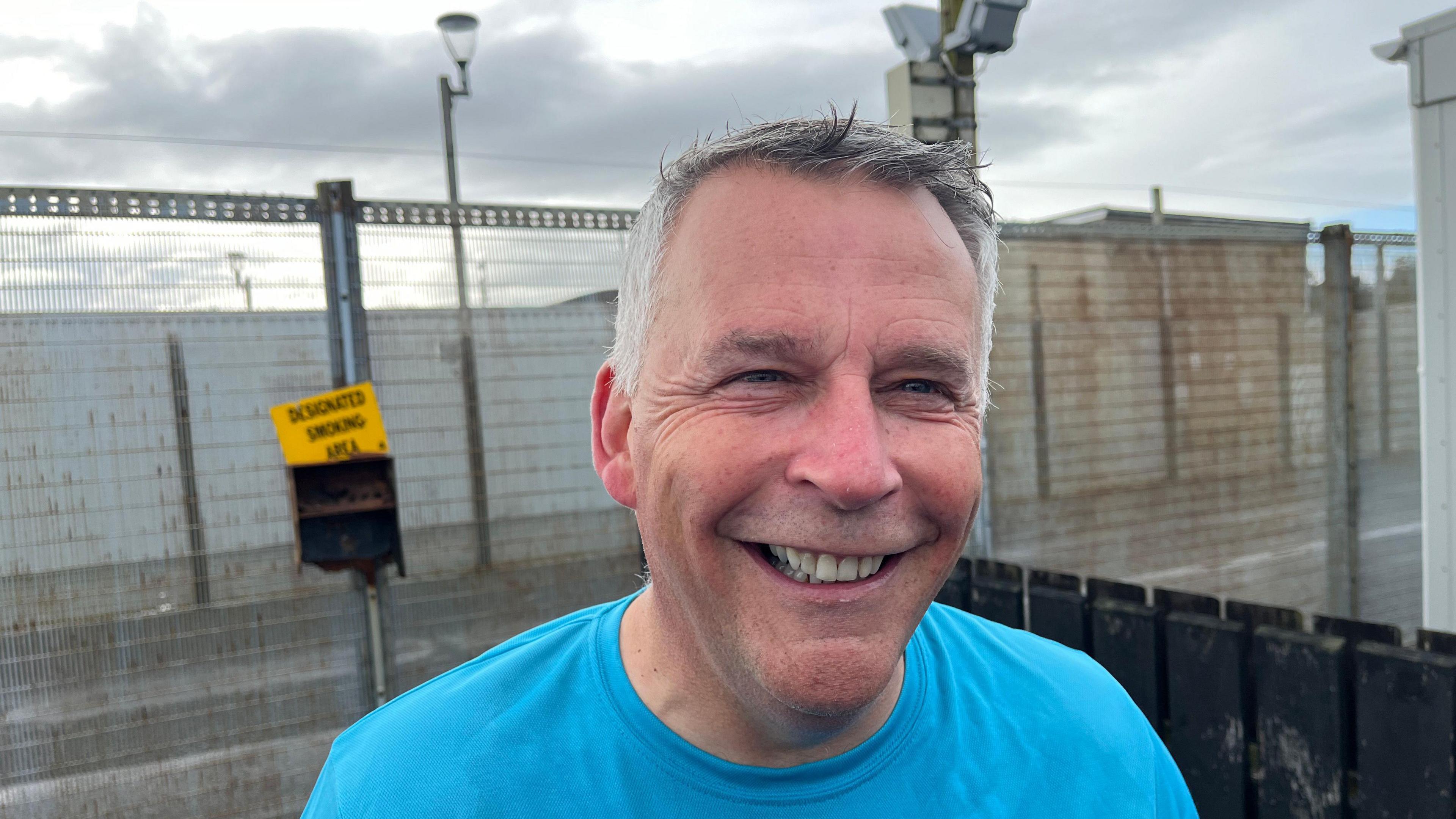
Governor Gary Milling rejects any suggestion that the weekly event is a perk which prisoners do not deserve
- Published
A weekly run inside one of Northern Ireland’s jails is being used to try to help prisoners turn their lives around.
The sight of inmates on the move inside HMP Magilligan gives a whole new meaning to the phrase ‘prisoners on the run’.
The jail, near Limavady, stages an official 5km (3.1 mile) parkrun on Saturday mornings.
It happens at the same time as parkrun events take place across the outside world.
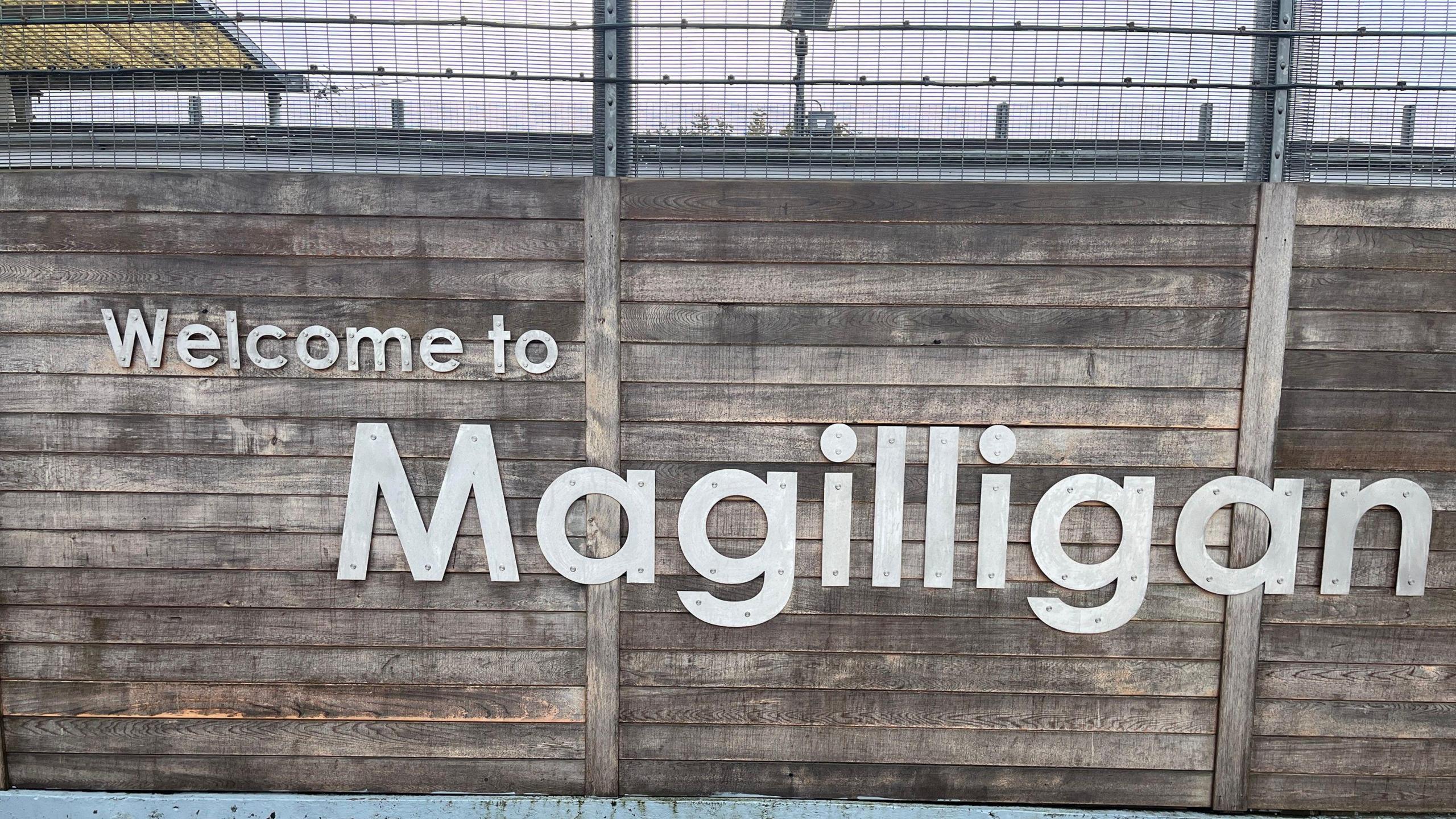
Magilligan was the first prison parkrun on the island of Ireland and the second within the UK
The governor, Gary Milling, rejects any suggestion that the weekly event is a perk which prisoners do not deserve.
“We realise that we’ve got to do something different - rehabilitation is the key,” he said.
His aim is to reduce the chances of prisoners re-offending once released.
“This is all about making sure we create fewer victims in Northern Ireland society,” Mr Milling added.
BBC News NI was allowed to film the weekly event, and talk to some of the prisoners taking part.
Given the confined space, they have to run up and down an outdoor walkway six times.
There are none of the trees or greenery that many parkruns enjoy.
Instead, inmates run past prison huts, barbed wire and high fences.
However, they do enjoy one parkrun tradition – refreshments afterwards, including tea, coffee, biscuits and sometimes cake.
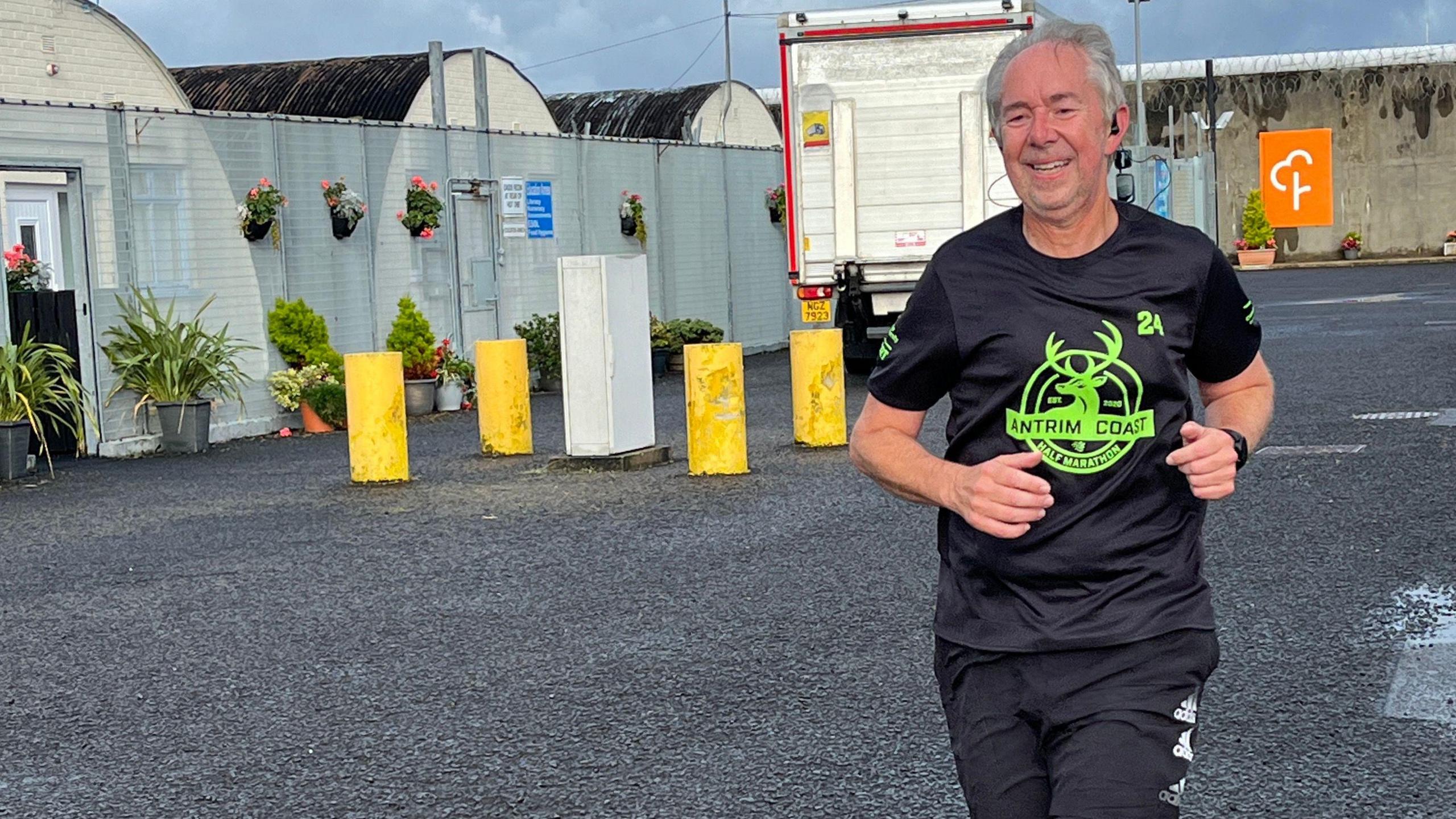
Deputy governor Alan Platt has completed 250 parkruns
'We're here as a punishment, not to be punished'
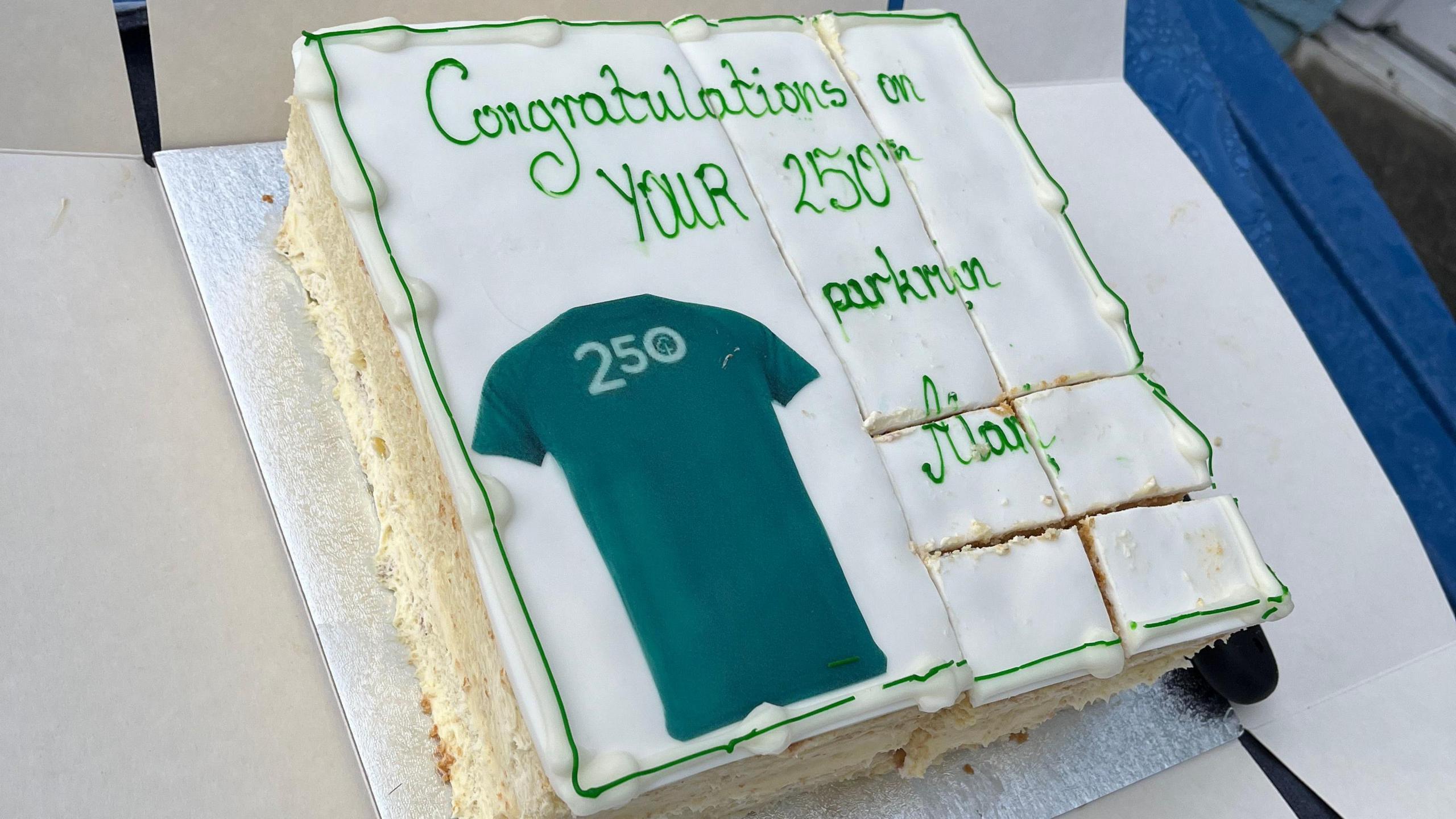
Dismissing the idea that prisoners should not be allowed a parkrun, one inmate said: “We’re here as a punishment, we’re not here to be punished.”
Another said: “I want to be healthy when I get out of jail. I don’t want to lie around and do nothing with my life.
“If people want us to come out and start re-offending again, well that’s because we haven’t done our jail time right and in here, doing this parkrun, helps us get better for getting outside.
“It’s a build up of little things that all add up to the bigger picture.”
The parkrun has been running for six years at Magilligan but only now have cameras been allowed to film it.
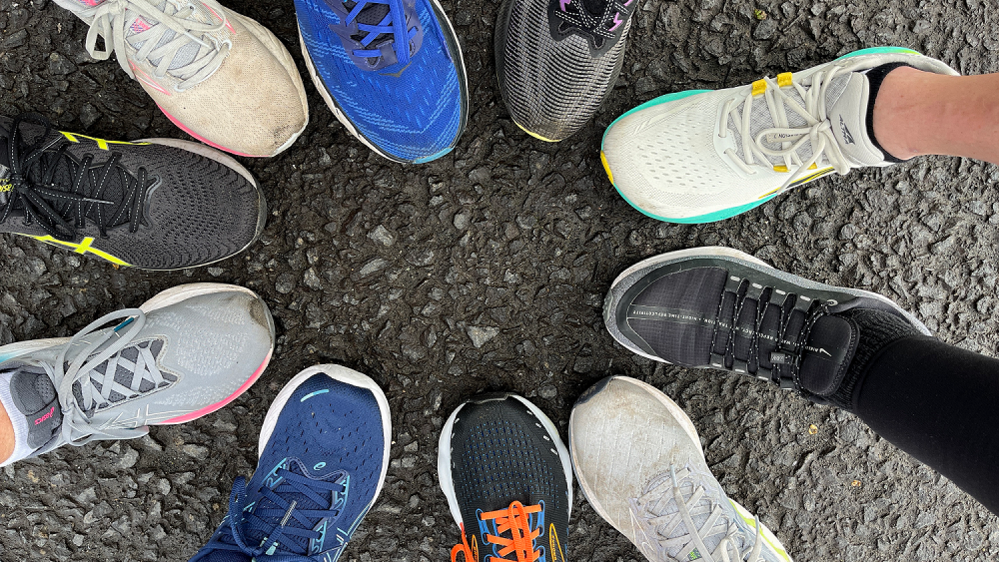
The governor, Gary Milling, is a runner himself, as is the deputy governor Alan Platt who has completed 250 parkruns. One of the prisoners has done 100.
A local running club, Springwell, has supported the event from the start and a number of its members took part in the 5km run on the morning we were filming.
Mr Milling said: “The big thing that you notice here … you’ve got the people that live here, the people that work here, people that have got absolutely nothing to do with here, all in here together.
“What we’re trying to do is show that inside this environment we can still hold some normality.
“Parkrun is just one of a range of interventions that we do where we’re looking to challenge people, support people, to make them look at themselves and look at their relationship with society differently.
“Over 70% or so of people that come into custody in Northern Ireland do so with alcohol and/or substance related histories.
“What the prison service is trying to do is to break those old, toxic habits of the past,” Mr Milling said.
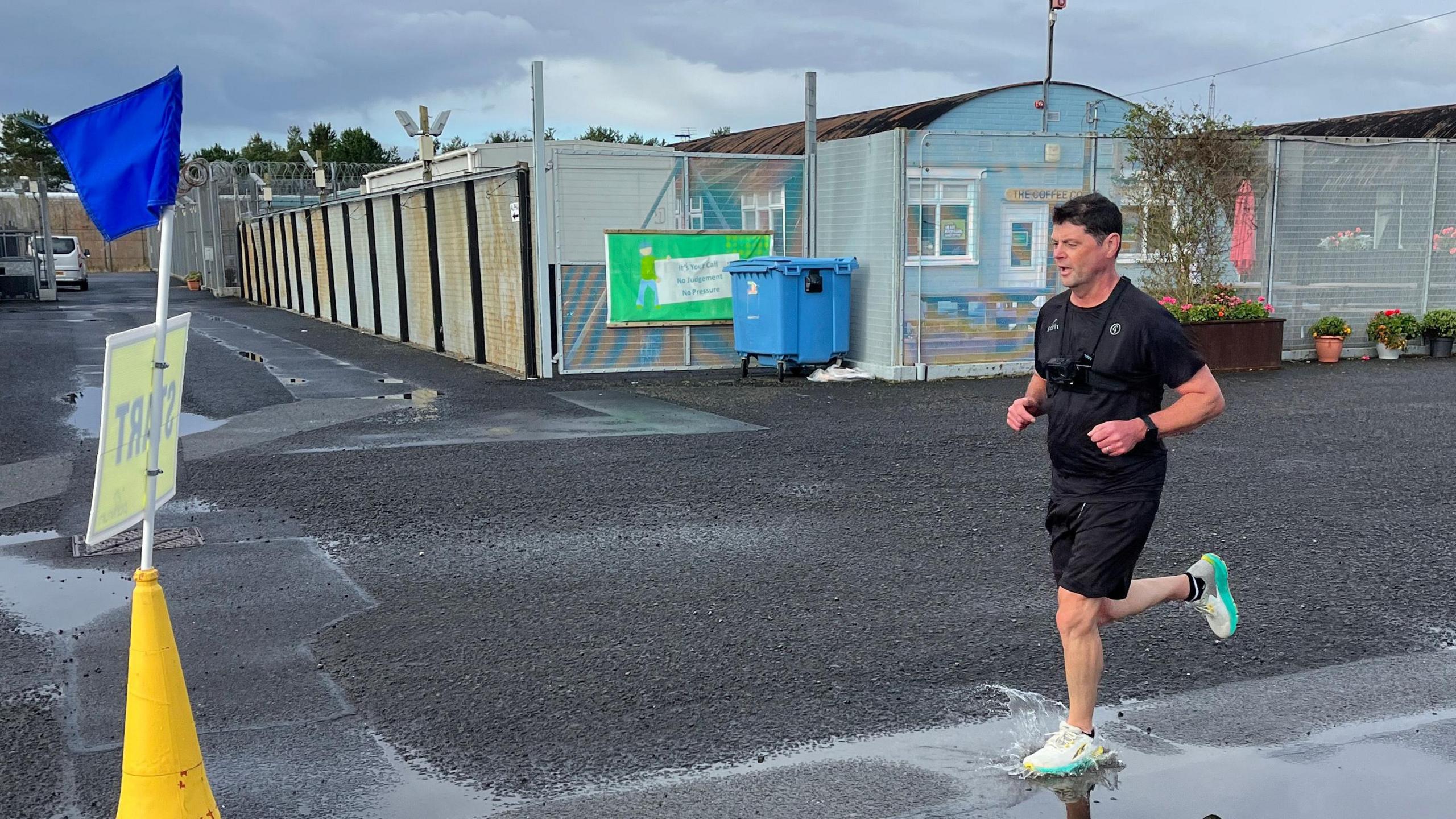
Event director Colin Rice also takes part in the run
Magilligan was the first prison parkrun on the island of Ireland and the second within the UK.
Its official title is Lower Drummans, and the event director is prison officer Colin Rice.
On the parkrun website, it does not mention it is staged within a prison but does say it takes place “on a closed facility and is therefore open to authorised people only”.
Parkruns are held around the world, including at more than 800 different locations across the UK, with more than two million participants in total.
Events are free and run by volunteers, but they also rely on local councils and land owners to enable them be staged.
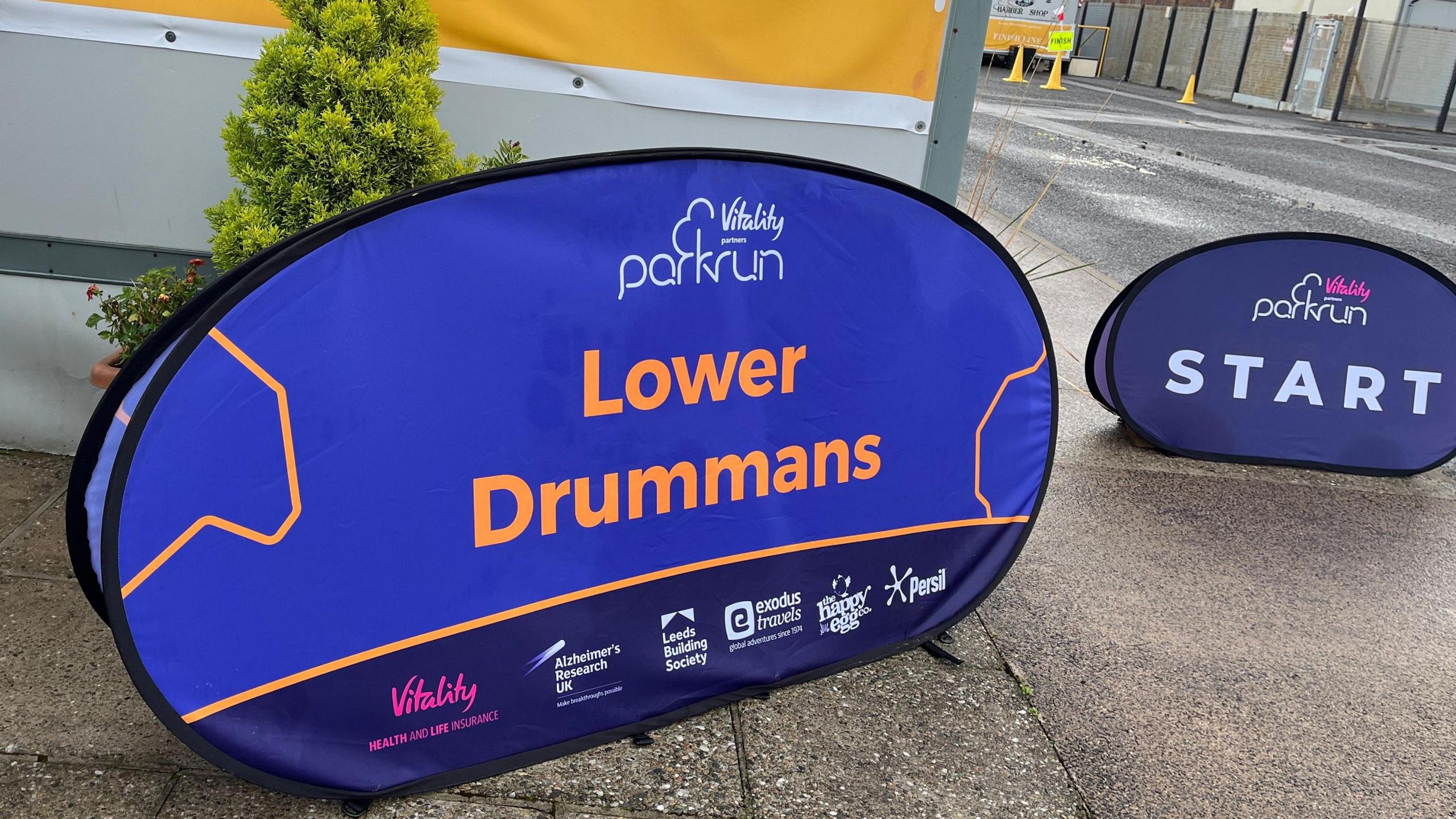
The parkrun is not compulsory at Magilligan. On the day we filmed, around 30 prisoners took part in the 500-capacity jail.
The fastest time for the 5km run was 19 minutes and 25 seconds. Anything under 20 minutes is seen as quick for a parkrun.
It is billed as 'timed run' rather than a 'race', but once the weekly event begins there is keen competition for places.
Inside a jail or outside, there is always a sprint to be first.
There is no escape.